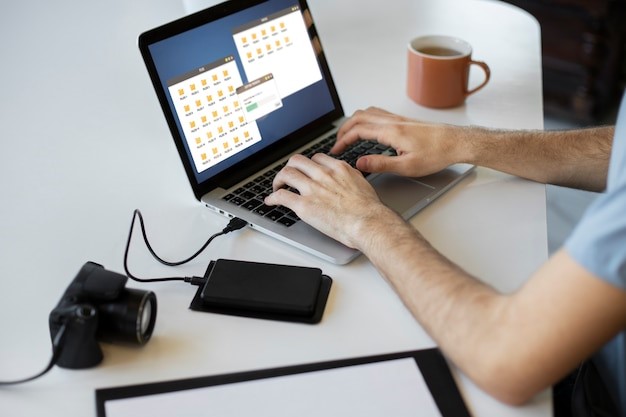Maintaining your laptop’s health and longevity involves a combination of hardware and software care. Here are some tips to help you keep your laptop running smoothly for an extended period:
- Keep Your Laptop Clean:
- Dust and debris can accumulate over time, affecting the cooling system and causing overheating. Regularly clean the vents and fan using compressed air to prevent these issues.
- Use a Laptop Cooling Pad:
- If you often use your laptop on soft surfaces like beds or couches, consider using a cooling pad. This helps improve air circulation and prevents the laptop from overheating.
- Update Software Regularly:
- Keep your operating system, drivers, and antivirus software up to date. Software updates often include security patches and performance improvements.
- Manage Startup Programs:
- Disable unnecessary programs from starting up with your laptop. This can improve boot times and overall system performance.
- Install an Antivirus Program:
- Protect your laptop from malware and viruses by installing a reputable antivirus program. Regularly update its virus definitions for optimal security.
- Be Mindful of Temperature:
- Avoid exposing your laptop to extreme temperatures. High temperatures can damage the battery, while low temperatures can affect the screen and other components.
- Optimize Battery Usage:
- If you use your laptop on battery power frequently, calibrate the battery occasionally. Also, avoid overcharging by unplugging the laptop once it’s fully charged.
- Use a Surge Protector:
- Protect your laptop from power surges by using a surge protector. Sudden power fluctuations can damage internal components.
- Backup Your Data Regularly:
- Set up automatic backups to an external drive or cloud service. This ensures that your important data is safe in case of hardware failure or other issues.
- Avoid Eating and Drinking Near Your Laptop:
- Spills can cause serious damage to your laptop. Keep food and drinks away from your workspace to prevent accidents.
- Organize Your Files:
- Keep your files organized and delete unnecessary files regularly. This not only helps with system performance but also makes it easier to find what you need.
- Use a Laptop Bag or Case:
- When transporting your laptop, use a padded bag or case to protect it from physical damage. Avoid placing heavy objects on top of it.
- Regularly Check for Hardware Issues:
- Pay attention to any unusual noises, vibrations, or errors. Addressing potential hardware issues early can prevent further damage.
- Monitor Resource Usage:
- Use task manager or system monitor tools to check resource usage. Identify and close resource-intensive applications to optimize performance.
By incorporating these tips into your laptop maintenance routine, you can significantly extend its lifespan and ensure a smoother overall experience. Regular care and attention can go a long way in preventing issues and preserving the health of your device.

